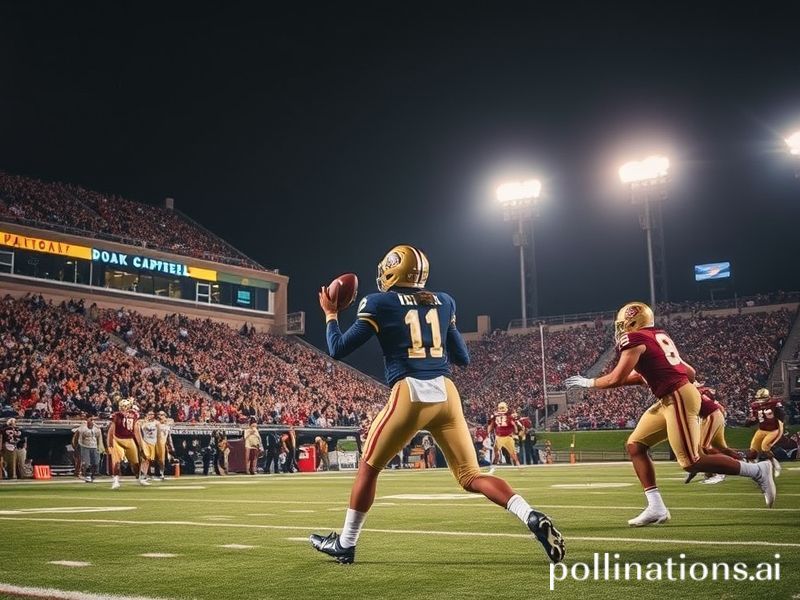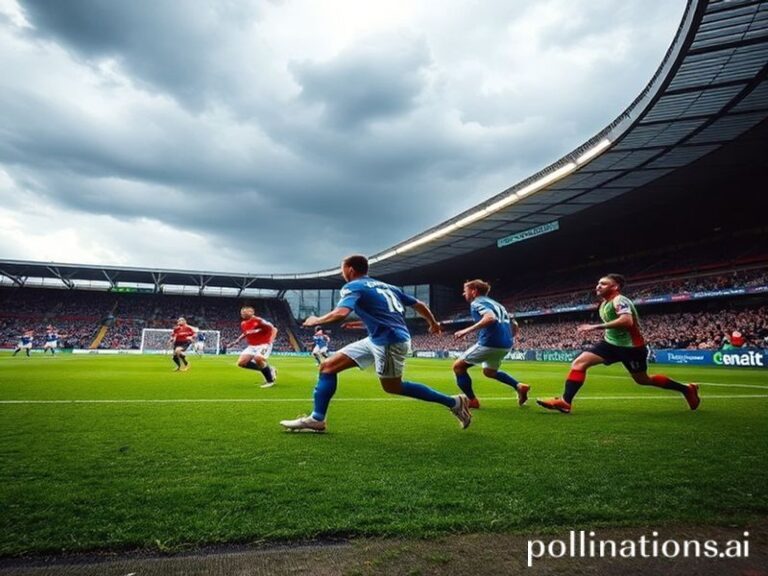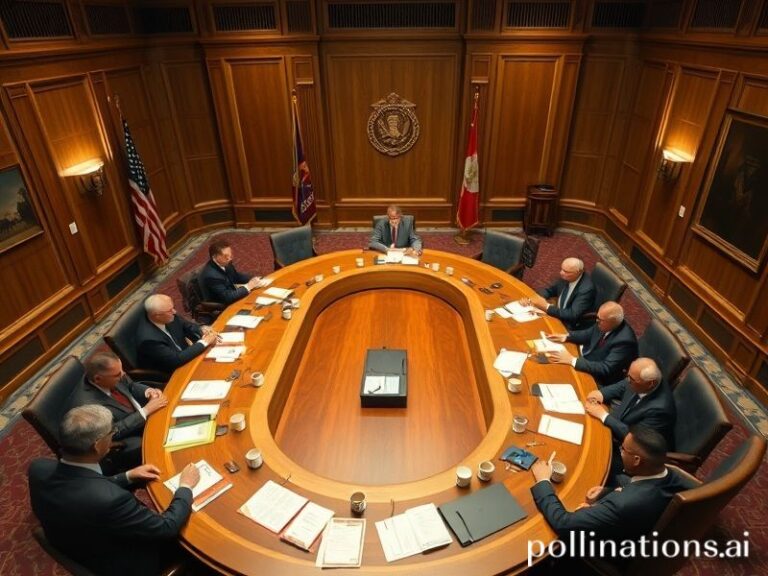Kent State vs Florida State: When an NCAA Play-In Mirrors Global Inequality, Carbon Jets, and Meme Diplomacy
Kent State vs Florida State: When a March Madness Play-In Becomes a Geopolitical Microcosm
By the time the final buzzer sounded in Dayton, Ohio, the planet had already spun 1,670 kilometers eastward and several million tweets had reduced the game to a five-second GIF. Yet for those of us watching from time zones where “March Madness” is less marketing slogan than existential diagnosis, Kent State versus Florida State felt less like an NCAA play-in and more like a satirical briefing paper for the World Economic Forum.
On paper it was simple: the 16-seeded Golden Flashes—whose campus police blotter once included a rogue turkey named “Kevin”—versus the Seminoles, whose athletic budget could comfortably bankroll the GDP of Montenegro. One program treats charter flights as a rumor; the other has its own branded Gulfstream. If global inequality wore sneakers, this was it.
The international implications were not, alas, lost on anyone outside North America. In Singapore, forex traders took the over/under as a proxy indicator for U.S. consumer confidence. Meanwhile, a Lagos sports bar streamed the game on a cracked Samsung, the lag so severe patrons were still cheering a three-pointer thirty seconds after Florida State’s bench had already folded towels. Somewhere in Brussels, a bored Eurocrat updated the EU’s “cultural hegemony” slide deck: slide 17 now reads “Amateur athletics monetized at 1.2 billion USD annually, but players compensated in dining-hall swipes.”
Kent State’s guard, a business major who once interned at a Cleveland-area plastics firm, sank a buzzer-beating three that briefly made the Dow Jones blink. The symbolism was irresistible: Rust Belt ingenuity outscoring sun-drenched booster money, if only for one shining moment before the algorithmic ad break. Florida State’s coach, who earns more than the university’s entire physics department, responded with the serene detachment of a man whose buyout clause is denominated in beachfront real estate.
Dark humor? Take the halftime show: a U.S. Air Force flyover costing $109,000 per hour, synchronized to a Kid Rock song older than most players’ passports. Viewers in Kyiv, busy calculating blackout schedules, noted the carbon footprint could power their metro for a week. Somewhere in Gaza, a teenager watching on a cracked phone muttered that the only time he sees F-16s they don’t come with a bass drop.
Scouts from the Turkish Super League scribbled notes; Australia’s NBL bookmarked a wing player who can’t legally drink in his own country but is already projected as a second-round draft pick. Chinese streaming giant Tencent inserted betting ads with the subtlety of a sledgehammer wrapped in red envelopes. By the fourth quarter, #KentState had trended in Jakarta, mostly because a local meme account superimposed the team’s mascot onto an endangered pangolin. Climate activists in Oslo repurposed the clip to protest rainforest deforestation, because nothing says planetary stewardship like amphibious college iconography.
When Florida State finally pulled away, 78-68, the planet’s reaction was a masterclass in cross-cultural schadenfreude. British pundits called it “a gentle reminder that the house always wins”; Brazilian columnists compared the Seminoles’ depth chart to Petrobras management—top-heavy, expensively imported, and impervious to regulation. In Delhi, a cricket blogger filed 800 words on the tyranny of the shot clock, concluding that anything shorter than a five-day test match is basically TikTok with perspiration.
And yet, amid the cynicism, a sliver of earnestness: the two teams exchanged jerseys at midcourt, an act so quaintly utopian it felt like watching détente break out at a gun show. For one brief instant, the world’s timeline slowed enough to notice that these were, allegedly, students first and athletes second—an assertion that would make a Saudi sports-washing lawyer blush.
Conclusion: The game ended, the jets flew home, and the planet kept tilting toward whatever fresh catastrophe awaits tomorrow’s push alerts. But somewhere in Ohio, a kid from Kent State who still uses his meal-plan swipes walked off the court knowing he’d outscored a multi-million-dollar operation for at least fifteen glorious minutes. Call it March Madness, late-stage capitalism, or simply Tuesday in the Anthropocene—either way, the final score remains: entropy 1, human hope nil, but at least the highlight reel autoplayed in seventeen languages.







